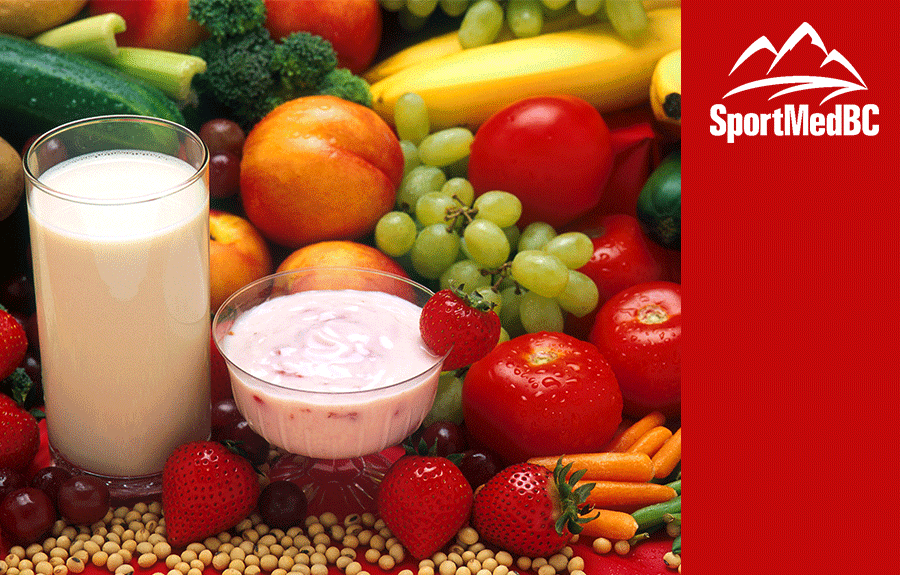Fuel up! Four steps to keep your tank full
Mar 09, 2015

Every athlete, whether recreational or elite, has the drive to gain speed, power, agility, technique, endurance and fitness. Your control over genetics and training outcomes can be influenced to an extent. However, the most controllable factor in developing your athletic potential and performance is the fuel your body is provided. Too many athletes learn about “hitting the wall” by running head-on into it, and subsequently how proper nutrition can eliminate these episodes.
How many times have you heard an endurance runner say “I would have run a 3:30, but I hit the wall?” This feeling of hitting the wall is your body’s version of running on empty. Your body is running out of its primarily source of fuel – glucose. Glucose is a sugar that comes mainly from carbohydrate foods such as cereal, breads, fruit, rice, pasta and vegetables. These carbohydrate foods have a variety of different sugars that your body converts to glucose to use as fuel for exercise. Fueling your body adequately can eliminate all the “I would have…” races.
Both your daily nutrition and training nutrition will affect how well stocked your glucose stores are and how well you perform. Glucose from food is stored in our liver and muscles as glycogen. The average person can store approximately 1200-1800 kcal or 300-400 grams of glycogen. During exercise these glycogen stores are converted back to glucose to provide energy for muscle fuel. Unless carbohydrates are consumed, muscle glycogen stores will run low, become depleted and you literally run out of gas.
The path that your body takes to turn carbohydrate into energy can be explained as:
Carbohydrate food intake ⇒ Digested ⇒ Converted to glucose ⇒ Stored as glycogen for later use ⇒ Used for energy to exercising muscles
4 Steps to Keep Your Tank Full
1. Daily Nutrition:
- Eat 3 meals a day with at least 3 or 4 food groups included. This guideline will help ensure you get adequate protein and carbohydrate to fuel your muscles and brain.
- Eat 2 or 3 healthy snacks each day. Aim for 2 to 4 food groups in these snacks.
- Stay well hydrated. Drink water with all meals and snacks. Aim to go pee every 1-2 hours during the day and your urine should be clear or pale in color.
- Consider a basic vitamin supplement, but don’t rely on it as insurance!
- Show up adequately hydrated. Aim for at least 2 cups of water before exercise.
- If training in the morning and not a big breakfast eater, have a high carbohydrate evening snack. Some examples: fruit, bagel with jam, popcorn, cinnamon toast.
2. Pre-Exercise:
- High carbohydrate snack with some protein and a minimum of 500ml water within 1-2 hours before training.
- Example: ¾ cup low fat yogurt, 1 banana, 5 crackers and 2 cups of water
- Refer to SportMedBC Nutrition Library article Pre-Exercise Nutrition for more specific guidelines.
3. During Exercise:
- For exercise lasting over 90 minutes take in approximately 30-60 g of carbohydrate per hour.
- Either solid or liquid carbohydrate foods can be taken to meet these needs. Most sport gels and sport drinks contain approximately 15-25 g of carbohydrate.
- Some real food options that are easy to eat on the bike include, energy bars, dried apricots, or fig newtons.
4. Post-Exercise:
- Eat a high carbohydrate snack or meal within 1 hour after.
- Your post-exercise meal should contain:
- 1 g of carbohydrate per kg body weight
- 10-20 g protein
- 2-3 cups fluid
Key Messages
- Your feeling of running out of fuel is caused by not taking in enough fuel.
- Start fueled: Eat carbohydrate and protein 1-2 hours before exercise to top off energy stores.
- Stay fueled: eat or drink 30-60 g of carbohydrate per hour during exercise.
- Re-fuel: within 1 hour after exercise refuel with carbohydrate and protein to replenish stored energy and rebuild muscle.
- Stay hydrated: Drink with every meal and snack. Aim for at least 1 bottle per hour on the bike.
Finding the right nutrition balance for your training can be challenging. For additional information about carbohydrate intake, meal ideas, and to optimize your performance nutrition, connect with a Registered Dietitian through sportmedbc.com.
For information, contact info@sportmedbc.com.
